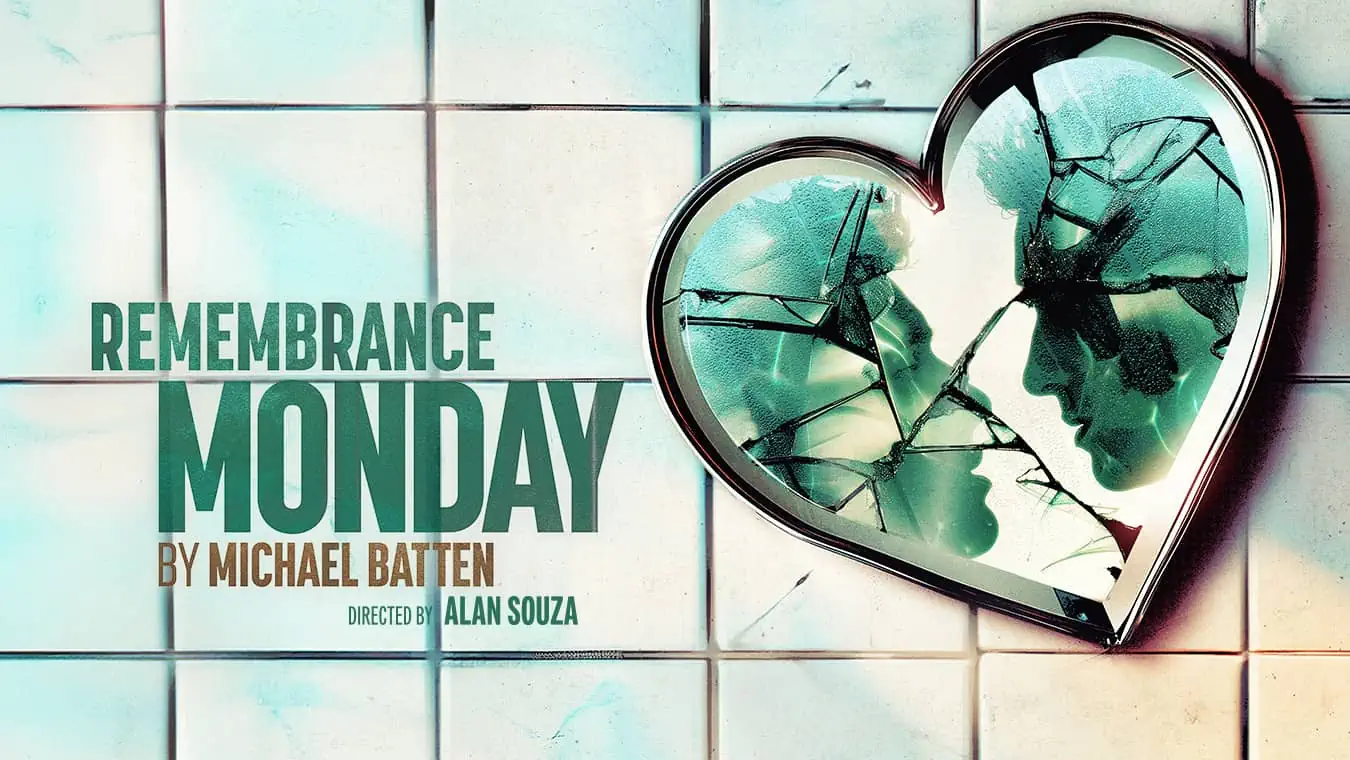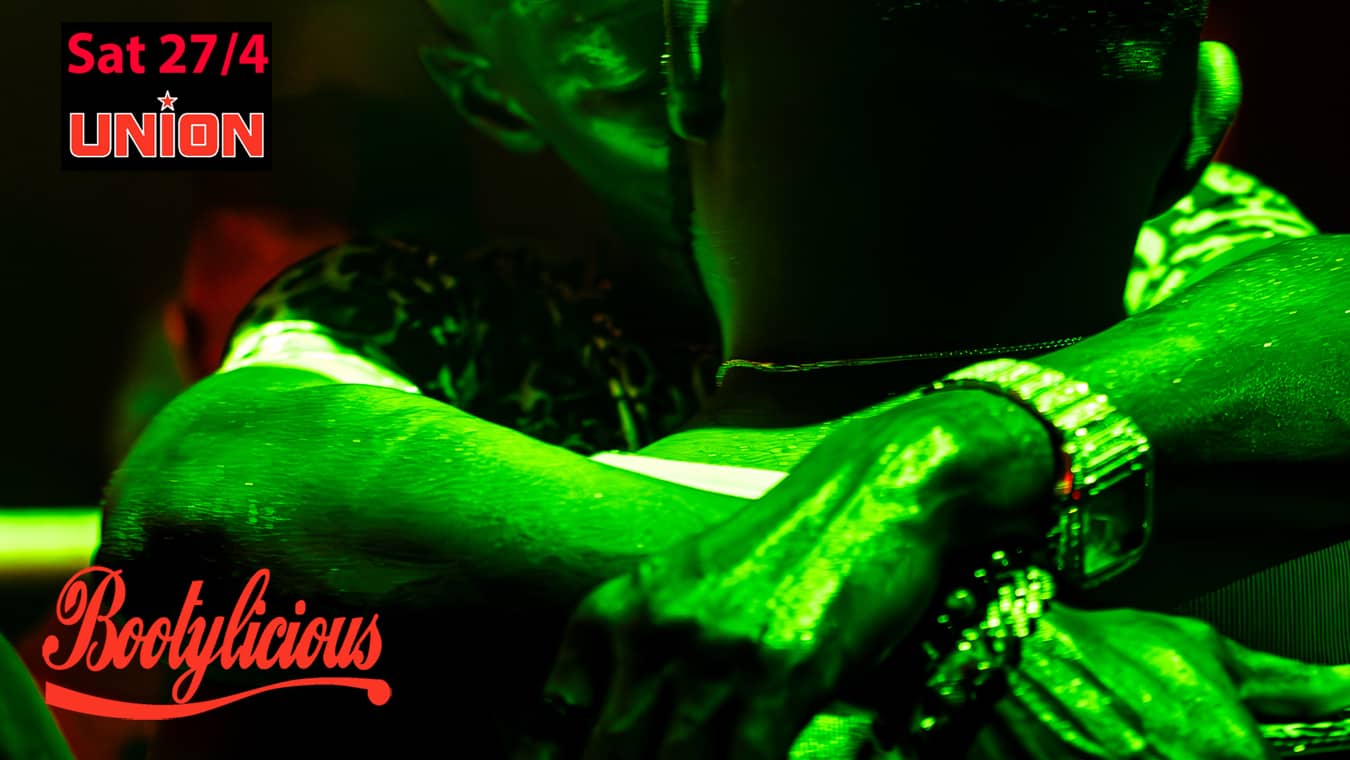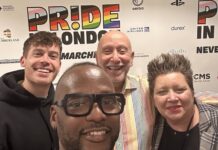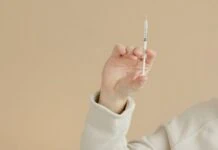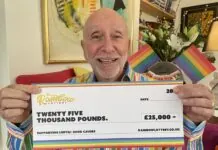HIV is a virus you don’t want to get. We all know this: the seriousness of the message is drummed into the collective gay consciousness almost constantly day to day via safe sex campaigns, HIV prevention adverts and the sexual health clinics. Despite the disconcerting evidence that rates of HIV infection amongst men who have sex with men are still rising (tied in with problematic drug use), if you ask an average gay man in a bar what their immediate opinion is of HIV, they would probably respond it is a bad thing.
Yet thousands of men in the gay community of London are currently living with HIV. If you’re negative, the overriding message is pretty clear that you want to stay negative, but what of the positive? There is mention in the prevention campaigns that these men have a duty to use condoms to stop themselves from spreading the virus yet beyond this charge there is perhaps little mention of what life is like dealing with infection. In effect, a gay man has to come out again, as positive to his negative friends. It creates a new, even smaller minority within a minority.
Last month a report was published entitled States of Minds, investigating more closely the effects of living with the virus may have on the mental wellbeing of HIV+ men. Developed by HIV charity Positively UK and funded by Janssen, it reveals that three-quarters of people living with HIV have experienced mental health problems, with nearly a quarter missing treatment doses as a result. The report calls for more to be done to support the mental health of people living with HIV (PLWHIV).
Although neither Positively UK nor the report itself are specifically LGBT-orientated, Positively UK receives a huge influx of gay men requesting help and, as HIV affects the gay community disproportionately to heterosexuality, QX felt it an acute enough issue to investigate more thoroughly the findings of this report amongst gay men living with HIV. We have spoken to here both interviewees who are living with the virus, some of whom want to remain anonymous, and key figures from the sexual health industry who work with HIV+ gay men on a daily basis.
Timothy Lock, 44,
Hospitality Management
When were you diagnosed with HIV?
I was diagnosed on November 2, 2011. My immediate reaction was a mixture of shock and denial.
Do you think there is a need for greater support to mental wellbeing and HIV in general?
I think that there should be easier access to speaking to someone impartial about the feelings you experience being HIV positive. Perhaps a psychiatrist or psychologist.
Have you ever felt your own experiences of living with HIV have affected your mental wellbeing?
Yes, I have intimacy issues. I’m afraid that someone may not want to touch me or be intimate because of my status. However, approaching this subject is like navigating a mine field. Most times I put on a smile, and a brave face and don’t mention it. Although I realise this approach doesn’t deal with the underlying issues, and just sweeps them under the carpet.
Do you think there are still stigmas lingering around a positive status within the gay community?
Most definitely. The word ‘clean’ has worked its way into the gay lexicon to describe someone without an STI such as HIV. This would then suggest that someone who is HIV positive is on the flip side of the coin, or ‘dirty’. Getting rid of these two terms would be an important first step into further breaking down stigmas about people living with HIV.
• Timothy Lock regularly performs standup comedy related to living with HIV at Spoken Word London on the second and fourth Wednesday of the month.
Anonymous, 25
‘When I first got diagnosed I thought my life expectancy had been shortened by years and thought that having this virus would also have a massive impact on my health and the way I look. How wrong was I. Why? Because of all the media and stigmas out there. I am now under treatment, which means the virus is not affecting my health and I can lead a normal life.
There is so much emphasis out there on NOT getting HIV that when you actually get it you think you are going to die because of all the bad warnings you’ve seen or heard. I think its good to prevent people from getting the virus but we should also focus on educating people about what the virus is and what having it involves rather than just preventing people from getting it. That way people who are positive wouldn’t necessarily feel excluded.’
Tom Hayes, 28, ‘UK Positive Lad’
Editor of Beyond Positive
When were you diagnosed with HIV?
I was diagnosed HIV+ in August 2011 in a sexual health clinic in Birmingham. Initially I didn’t react at all to the news, it felt just like someone was telling me I’d got an ear infection, even the nurses were surprised how well I was handling the news. It wasn’t until I was part way home, walking through a park, that it hit me – I burst into tears and ended up having to call a friend to come and pick me up.
Do you think there is a need for greater support to mental wellbeing and HIV in general?
For a lot of people, even today, being diagnosed with HIV is a traumatic experience. You have so many fears, concerns and questions, and so many of those are of an emotional nature. Two years on I’ve largely adjusted to life with HIV, but there are still times I feel myself struggle. Luckily I have a great support network of family and friends around me, but others may not.
Have you ever felt your own experiences of living with HIV have affected your mental wellbeing?
I’ve always been prone to depression, in fact I’ve had several bouts of clinical depression in the last 15 years. So when you add coping with a HIV diagnosis on top of that, you’re asking for trouble. My most troubling experience with HIV and mental health was when I broke up with someone I was dating. He took his revenge by telling everyone on Facebook and Twitter my HIV status – that night I almost took my own life, it was all too much to deal with.
Do you think there are still stigmas lingering around a positive status within the gay community?
After two years of living with HIV I’m sad to say that the worst examples of stigma I’ve experienced have been from gay men. It may be 2013 but we’re still fighting for equal rights, both at home and overseas – there is no sense in fighting amongst ourselves. We should be supporting our HIV-Positive brothers and sisters.
• Follow Tom’s Twitter at @UKPositiveLad and his blog www.ukpositivelad.com for more on his experiences of living with HIV.
David Stuart, Antidote (London Friend)
the LGBT drugs/sexual health charity
‘It’s interesting to note that the sexualized use of crystal meth by gay men in London, began (some years back) almost exclusively with older, HIV positive men. There’s something telling about that, which we need to explore, in regard to gay mens’ experience of living with HIV, particularly in regard to their sex lives.
Drugs are a great way to avoid issues, and the need to avoid the complicated and uncomfortable “HIV disclosure” conversation, might be an explanation of why drugs are used so prolifically for sex by gay men in London. If we find that our HIV status is isolating us, the allure of bareback sex with strangers on drugs is only an app-click away.
There are two ways to address HIV associated mental health/poor well-being; one is through support/therapy; the other is through the escapism provided by drugs/alcohol. It’s sad that drugs and alcohol are so readily available on our scene; and some would argue, easier to access.
Perhaps two of the most stigmatized conditions today are HIV and mental health; we’re battling two stigmas here. Seeking support ought not be a shameful pursuit, but a proud demonstration of positive self-care. What a shame London has no LGB&T community centre, where fun activities, groups and café’s shared the same space with support services; this would de-stigmatise the pursuit of support, and normalize it as a pro-active part of our LGBT lives.’
•
Ian Howley
Editor of FS Magazine, the gay men’s health magazine published by GMFA, the gay men’s health charity
‘At FS/GMFA we hear of lots of gay men thinking that they will be fine with a HIV diagnoses – “It’s just one pill a day” . We then see lots of gay men who become depressed and even suicidal because of a positive diagnoses. They are not ready for what a HIV diagnoses involves. The stigma that still surrounds a HIV diagnoses certainly does not help.
Gay men who become positive tend to face sexual rejection from potential partners. This can have a serious effect on how HIV-positive gay men value themselves and the sexual practices they get involved with. For instance, HIV-positive men are more likely to abuse alcohol, do drugs and be involved in chem.-sex parties. This is something that we as a community need to tackle head on.
It goes without saying that looking after your mental health helps with all aspects of your life. We can tell people ‘wear a condom to help stop the spread of HIV’ all we like, but if that person doesn’t value themselves then why would they care about becoming HIV-positive? HIV prevention is more than just telling gay men to put a rubber on their cock. Gay men need to look after their mental health and we as a community need to be doing more to make sure those who need support are getting it.
The advancement in medication means that gay men who are HIV-positive tend to lead a normal quality of life to someone who is HIV-negative. Because of these advances, we don’t ‘see HIV’. There are lots of gay men who generally don’t know what HIV is or how it’s transmitted. They don’t understand HIV and generally when people tend not to understand something they tend to become scared of it. To combat stigma I think we need to educate younger gay men about what HIV is. HIV-positive men need to become more visible in the community again. This is a tough thing to ask, but it’s what is needed to help combat stigma.’
• www.gmfa.org.uk
Allan Anderson
Chief Executive of Positively UK
‘There’s definitely stigma in the gay community around HIV. Many people I know wouldn’t tell others about their HIV status for fear of repercussions and that includes others in the gay community. I’ve spoken to people who have used Grindr, been chatting to someone about meeting up, and as soon as they reveal their HIV status are blocked. I also remember some time ago I was at a party at a friend’s house in Essex and caught the train back to London with a few others. I didn’t know them that well, and we were chatting about our respective jobs and my role in an HIV charity. Positively UK’s services are peer-led so most of our staff and volunteers are also HIV positive. The guys on the train asked me wasn’t I afraid of catching something working in an office full of HIV positive people? These were well-educated gay guys, with successful careers who still had a lot of misconceptions and prejudices towards HIV.
There’s a lot we can do to tackle HIV stigma. We all need to challenge people when they’re being prejudiced. I spent much of that train journey telling the guys on the train about HIV and addressing their concerns. We need to do a lot more education so people have a better understanding of HIV and transmission. It sounds strange but a lot of the gay community who are my age still hold the images of HIV from the 80s and those tombstone adverts. Younger guys know so little about it that attitudes can be based on misguided fears or lead to them taking unnecessary risks. For instance how many people know that as a result of medications, most people living with HIV have such low amounts of HIV in their body, that the risk of transmitting HIV is also incredibly low. This is not to say we shouldn’t still take precautions, but it’s about understanding the reality of HIV today. We need to see HIV more in the mainstream.
That’s one of the reasons why the voluntary and community sector have launched an e-petition. The petition calls on government to maintain support services and tackle HIV related stigma. But it’s not just about the government; through the petition we want to start a discussion, raise greater awareness of HIV and for people to show they are committed to tackling stigma together. Signing and sharing the petition is not the final solution, but it’s a good place to start: link deleted.
Anonymous, 24
Notting Hill
‘I was diagnosed 3 years ago, and my immediate reaction was strangely calm, and philosophical. I thought, cool, I can handle this, I’ve got loads of friends who are HIV+, and they seem fine. But the impact was more subtle, and harder to identify. I didn’t realize I was avoiding getting involved with people; I was hooking up for casual sex all the time, but didn’t realize this was a response to my issues about being HIV+. I think there is plenty of help there, I just didn’t realise I needed it, until it was kind of too late, when my drug use and sex life got out of hand.
Sometimes, in bed with a negative guy, I convince myself that all he’s thinking about is whether what we’re doing is safe or not. Like, all he’s thinking about is disease. Or maybe that’s just me being paranoid. It’s just unpleasant, and makes me want to avoid telling people, or just shag strangers. Which I’ve been doing, and it’s not good for my mental health.
I’ve been rejected, really ignorantly on hook-up apps for being positive. Once a guy asked me if I was ‘clean’; I knew what he meant, told him I’d just had a shower, and added that I was positive. After a long wait, the response was that he was a medical student and didn’t want to ruin his career. I mean, ‘what the fuck?!’’
• www.positivelyuk.com
• To read the full States of Minds report visit: www.positivelyUK.org/policy/statesofmind


